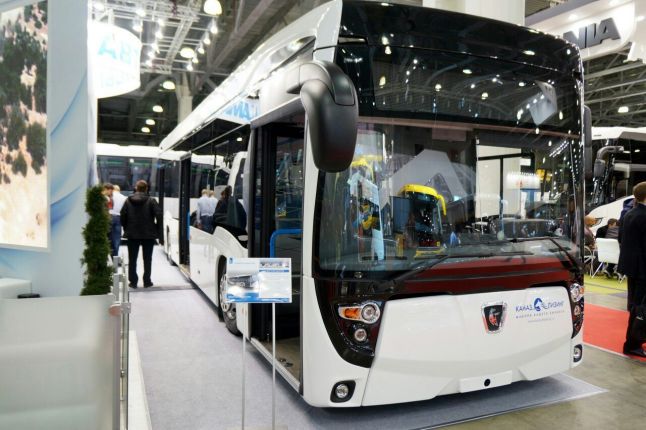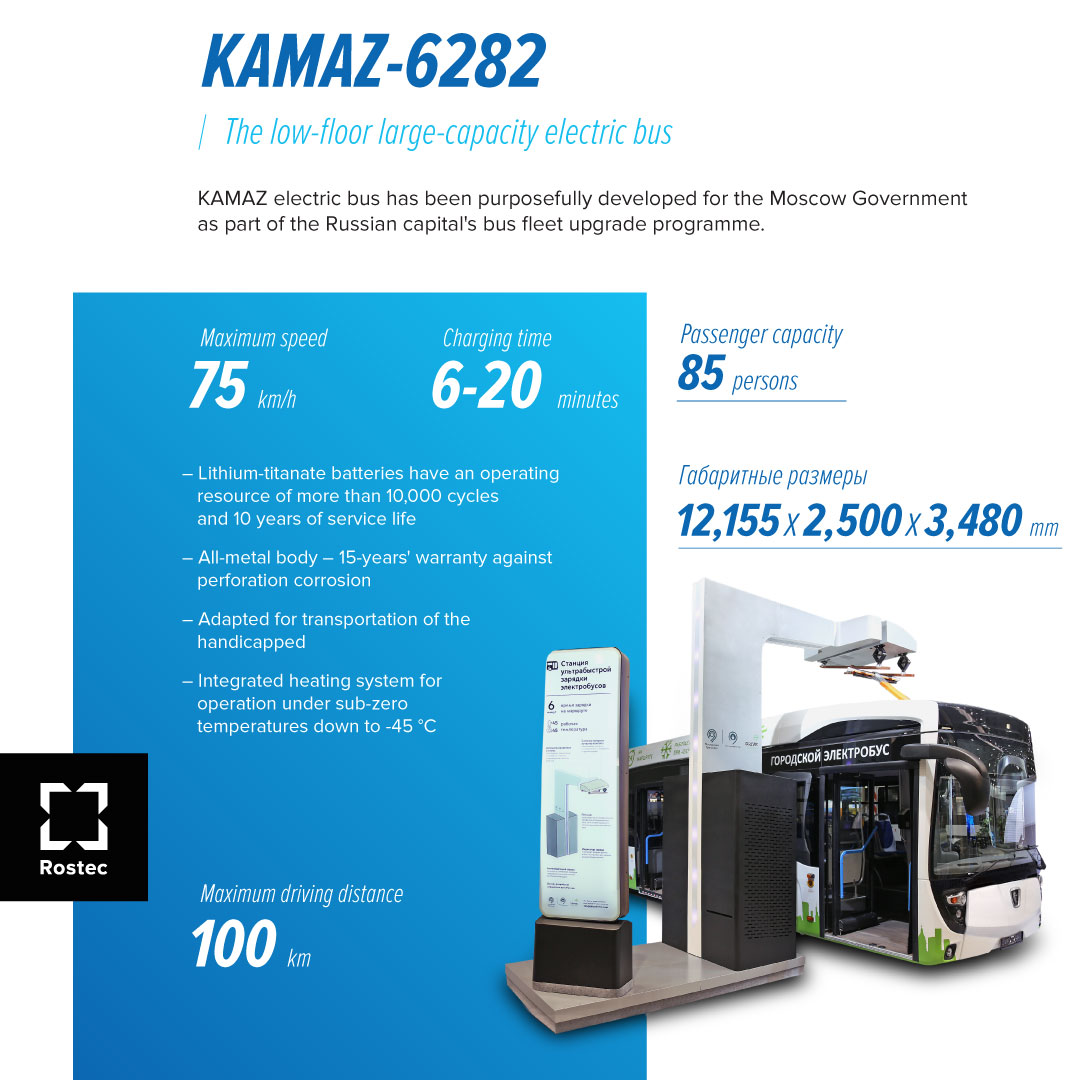
In August this year, the Moscow Government made a decision to replace diesel buses with electric motor driven buses as public ground transportation. Pilot KAMAZ vehicles are already being field-tested in the streets of Moscow. Today, KAMAZ-6282 electric bus is fully ready for commercial output and meets all the requirements to urban electric transport.
As was previously stated by the Moscow Mayor Sergey Sobyanin, the terms of reference for electric buses will be finalised by the end of the year. Starting from 2021, all new buses in the Russian capital will be electrically powered. Their main advantages over the means of transport powered by internal combustion engines are environmental friendliness, noiselessness and operating economy.
In the last two and a half years several models of electric buses were tested in Moscow streets, including prototypes of the KAMAZ vehicles. KAMAZ-6282 electric bus has already been tested on an existing commuter route and showed good results.
The tests allowed to obtain the data necessary to finalise the model, and this September, within the COMTRANS-2017 framework, the upgraded KAMAZ electric bus and a fast charge station were handed over to Mosgortrans during a grand ceremony. The second-generation KAMAZ-6282 has already been awarded the Best Russian Bus title at the Bus World Russia-2016.
The vehicle has been designed by KAMAZ jointly with the Moscow Engineering Company Drive Electro, the first Russian developer of an ultra-fast electric bus charging station. It takes only 6-20 minutes to charge KAMAZ-6282, which is 20 times less than the average charging time. What makes the charging station unique is its small dimensions. Other advantages include connectivity to alternate or direct current mains (for example, the trolleybus power network), as well as an automated hands-free charging.
The KAMAZ-6282 electric bus is equipped with lithium-titanate batteries. Apart from its high capacity and small dimensions, this type of accumulator is notable for its eco-friendliness: production of these batteries is associated with small amounts of carbon dioxide emissions.
Besides, the new electric bus differs from its predecessors by a modified roomy cabin – there is no engine compartment which resulted in an increased number of seats. Total passenger capacity is 85. It is also adapted for physically handicapped people, and equipped with CCTV cameras as well as a satellite navigation system.
As was noted by KAMAZ specialists, the prototype is entirely ready for commercial production and meets all the modern requirements to urban electric transport. The enterprise believes that the second-generation KAMAZ-6282 could become another step towards development of an eco-friendly transport in Russia.


